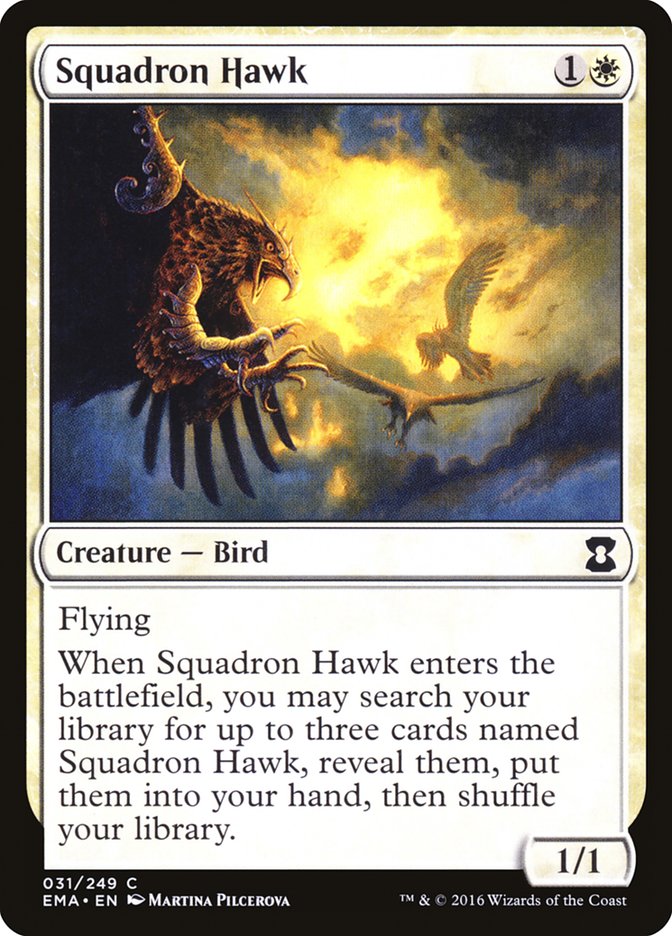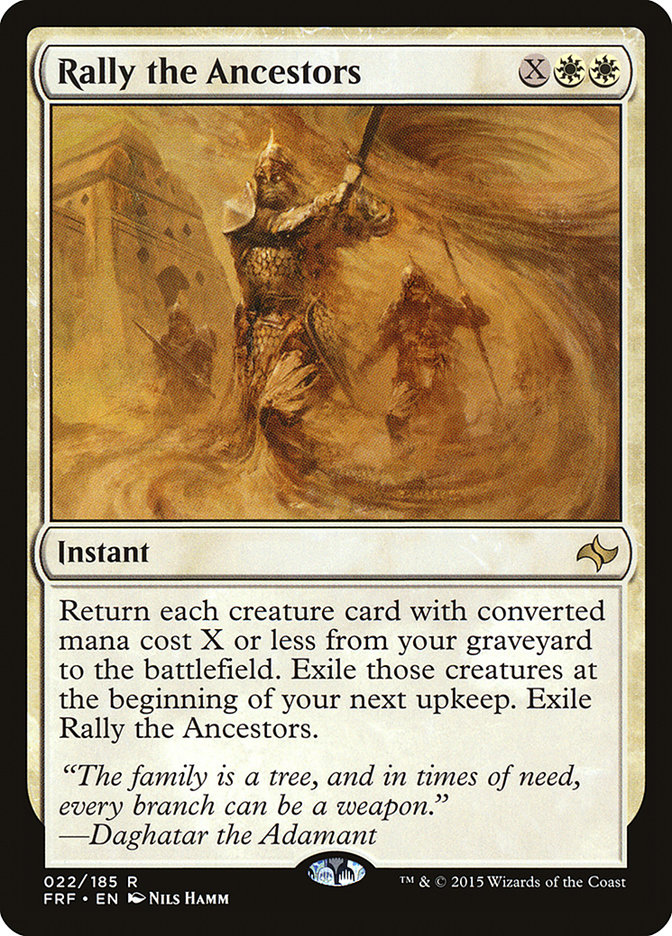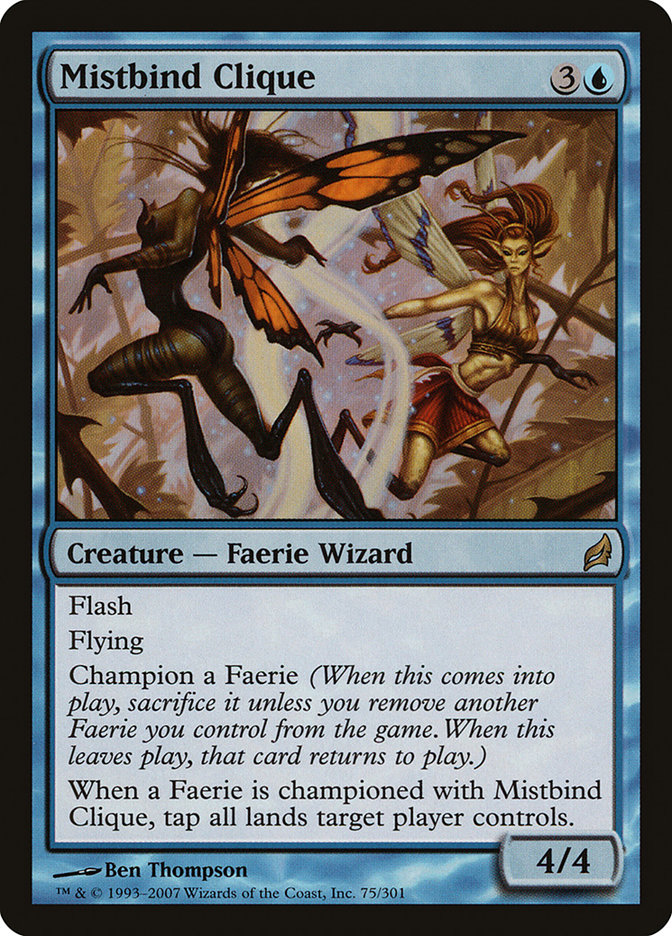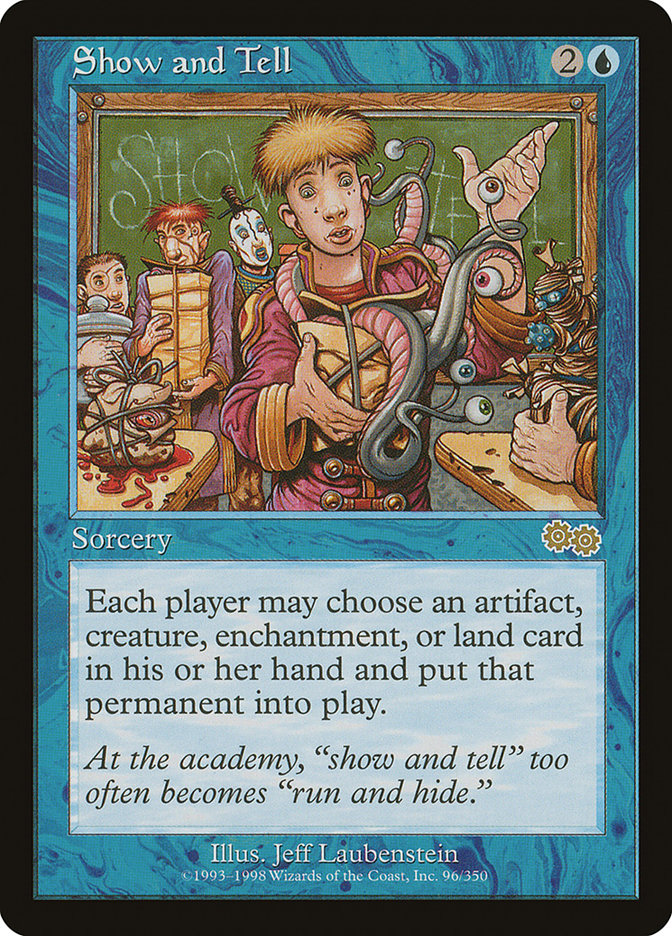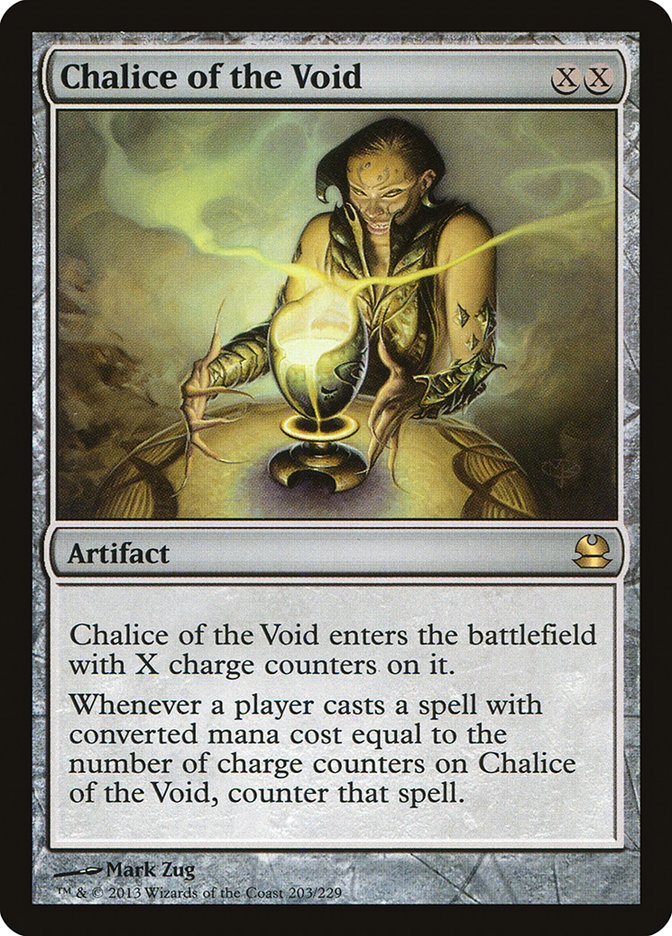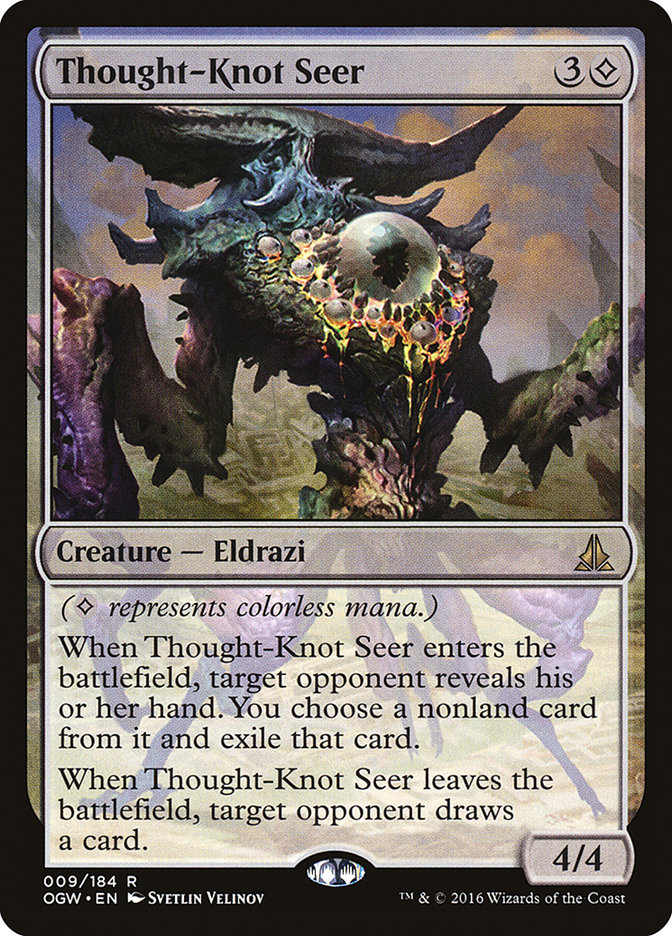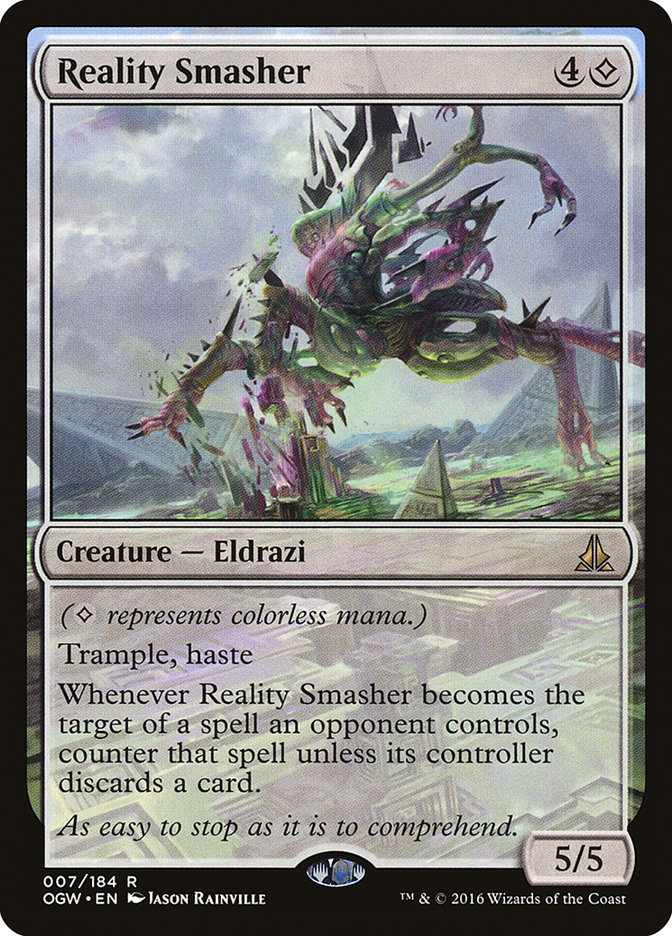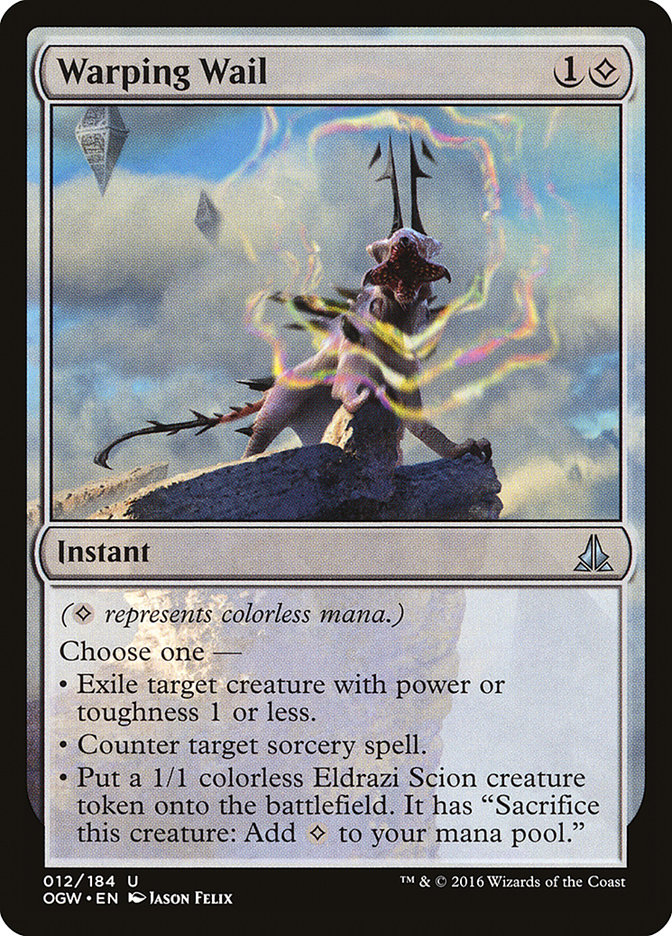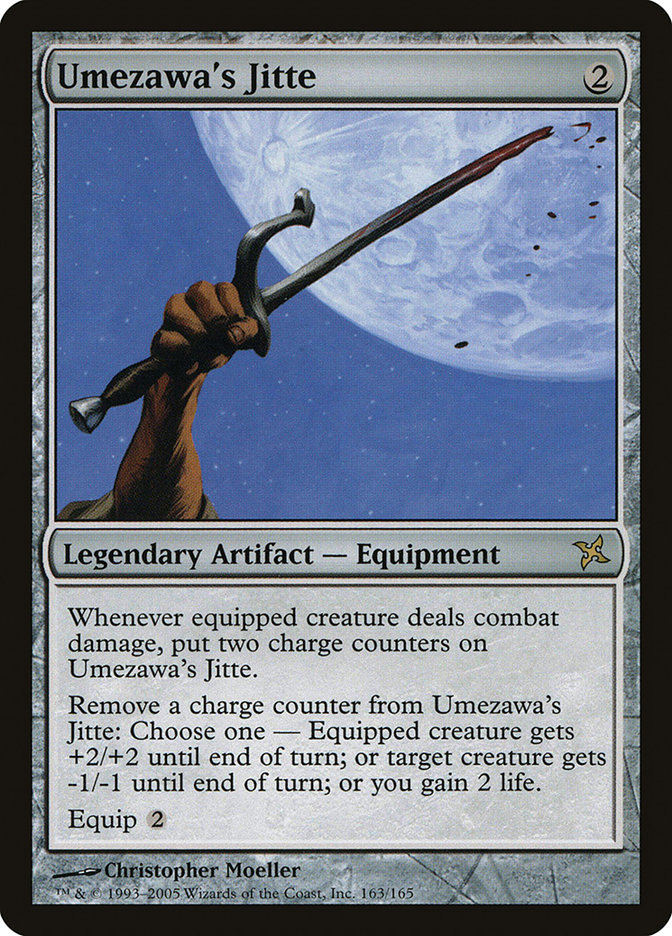 Rally the Ancestors in the previous Standard, or historical Standard terrors like Caw-Blade, Affinity, or Faeries.
Rally the Ancestors in the previous Standard, or historical Standard terrors like Caw-Blade, Affinity, or Faeries.
Playing the “villain” deck of the format, and playing the heck out of it, is a surefire way to start seeing more wins. I usually just take a look at whatever Reid Duke is playing and it’s usually either pretty close to this, or else an Andrew Cuneo special.
Play the Deck You Enjoy
How many times have you heard the winner of a tournament say they don’t like their deck? Well, it happens, but it’s very rare, usually only occurring in a broken format. (Think Eldrazi with Eye of Ugin in Modern.) I like to play green cards, whether it’s a combo puzzle deck like Elves in Legacy, a ramp deck like Devotion in Theros Standard, a Modern deck like Jund, or a creature deck like G/W Tokens. I just enjoy playing games with green cards more. I rarely will show up to an event with a blue deck, and when I do, I often don’t do nearly as well.
Expand Your Range
That being said, I still try to get practice in with decks like Jeskai Black or Grixis Control as well as any other major player of a given metagame. The best way to understand how to beat a deck is to play with it and lose with it. It might not be fun at first, but Magic tends to get more fun when you have a deep understanding of your deck. In order to get that, you need to practice. Keep losing until you start winning.
Magic Is a Marathon, Not a Sprint
Magic is a game with a lot of variance. There will be tournaments where you do everything wrong and still show up and get stomped. There will also be events where you don’t prepare well at all, and everything just seems to fall into place for you. Anyone can do well in a given event, but to keep doing well consistently over a long period of time requires discipline and dedication. Part of that discipline is being able to see that success is found in the process and not the results. Winning Magic tournaments doesn’t make you great. The hours you spend preparing for those tournaments make you great.
Your Opponent’s Body Language Tells a Story
The other day I was talking to a friend about how I think it’s easier to make close mulligan decisions in real life than online. You get to watch your opponent look at their cards for the first time in paper Magic. You can’t tell exactly what’s in their hand, but you will be able to see whether or not they like their cards, which gives you an approximation of their hand strength.
This is just one of numerous ways you can get information about what’s in your opponent’s hand over the course of a game. The more context you have for what’s going on in the game, the more specific you can make your predictions and play around what you guess. Pay attention to your opponent’s body language when they’re winning and when they’re losing. You will start to notice consistencies and can use the information to figure out if they have that blowout Dromoka’s Command or if you can attack safely.
On to Legacy!
A few years back, I played a pretty nifty Tezzeret deck in Legacy.
Creatures (4)
Planeswalkers (8)
Lands (21)
Spells (27)
- 4 Force of Will
- 1 Ensnaring Bridge
- 2 Transmute Artifact
- 1 Island
- 2 Thirst for Knowledge
- 3 Talisman of Dominance
- 4 Chalice of the Void
- 1 Engineered Explosives
- 3 Dimir Signet
- 2 Sword of the Meek
- 2 Thopter Foundry
- 1 Ratchet Bomb
- 1 Nihil Spellbomb
Sideboard

This deck had a lot of cool things going for it. It could play powerful planeswalkers as early as turn 2. It could put people in the Thopter Foundry / Sword of the Meek lock. It had a great tutor that allowed you to get a specific bullet or Thopter them out in Transmute Artifact. The deck was a blast to play, and if I had a copy, I would have a great time giving the deck another spin in a Legacy Classic.
However, the reason I decided to play Tezzeret in Legacy was because of how powerful this card was.
Legacy is a format with a ton of one-drops! From blue fair decks loading up on Ponder, Brainstorm, and Swords to Plowshares to combo decks running Dark Ritual, Entomb, Glimpse of Nature, or Exploration, there is always something fantastic to turn off in Legacy.
Unfortunately, the card comes with a pretty heavy deckbuilding cost. Because it is a mirrored effect, once the Chalice of the Void hits the battlefield, you can no longer play one-drops either. That means you don’t want to have any one-drops in your deck. In a format like Legacy, that can be pretty hard to do. Chalice of the Void’s steep deckbuilding cost is what keeps the card in check in the format.
It looks like there’s a new Chalice of the Void deck on the block. It’s been putting up impressive results so far, and I expect it to do very well at Grand Prix Columbus in a few weeks.
Eldrazi (?)
Creatures (21)
Lands (25)
Spells (14)

This is not really an Eldrazi deck. This is a Chalice of the Void deck that uses Eldrazi to win the game. There are several differences that this deck has versus something like Tezzeret, but at their core, they are trying to put midgame threats onto the battlefield as quickly as possible while at the same time trying to stifle the opponent’s development with Chalice of the Void and Trinishpere.
The Eldrazi deck sacrifices a bit of consistency by having less robust threats and losing access to Force of Will. In exchange it picks up a great deal in power by doubling the number of Sol lands, adding Eldrazi Temple and Eye of Ugin, and removing embarrassing cards like Dimir Signet.
The cast of creatures should come as no surprise. We have all seen Thought-Knot Seer and Reality Smasher wreak havoc over Modern this past winter, and it should come as no surprise that they’re just as potent in a format where Chalice of the Void is as crippling as it is. Unfortunately, in order to fit in all those Sol lands, the majority of the colored mana has to be cut, so we can’t play any of the cool devoid Eldrazi like Drowner of Souls or Eldrazi Displacer. Luckily, we have access to a few very strong colorless spells.
Warping Wail is great in Legacy, and in this deck, it’s incredibly easy to cast. From Ancestral Vision to Thoughtseize to Glimpse of Nature, there are tons of great sorceries worth countering in Legacy. Even more prevalent are small creatures! Dark Confidant, Stoneforge Mystic, Deathrite Shaman, Heritage Druid, and the list goes on. There is always something worth hitting with the card.
Umezawa’s Jitte is also fantastic in this deck. Because you have an abundance of colorless mana, it is much easier to find the mana to get the powerful equipment onto the battlefield, and the lifegain is a great way to counteract the damage done to you by Ancient Tomb.
Matchups
Eldrazi has a great plan against most of the top decks in Legacy. It is very strong against combo decks, where its Prison lock pieces and Thought-Knot Seers shine. It’s also very good against creature decks that have difficulty handling a steady stream of space aliens wielding Samurai swords.
The matchup I would be most concerned with for an upcoming event would be my beloved Lands deck. Eldrazi has a very hard time handling a quick Marit Lage, and Lands does a good job of sidestepping the lock pieces of Eldrazi while having a solid answer to the bulky creatures in the form of Maze of Ith. The best way to handle Lands is probably to stock up on Tsabo’s Web. That card is crippling to a deck like Lands and will let you easily get past any troublesome Mazes you see.
I think the newcomer to Legacy is a great choice if you are looking to get into the format with a powerful Tier 1 deck. It has excellent matchups against most of the top decks in the format, many of the cards are still in Standard and easily accessible, and the deck is fairly straightforward, allowing you to understand your deck very quickly while you begin to learn what the rest of the format can do.
If you are thinking of trying Legacy for the first time at the upcoming Grand Prix in Columbus or the #SCGATL Legacy Classic and aren’t sure what to play, I fully endorse giving the Eldrazi a try.

